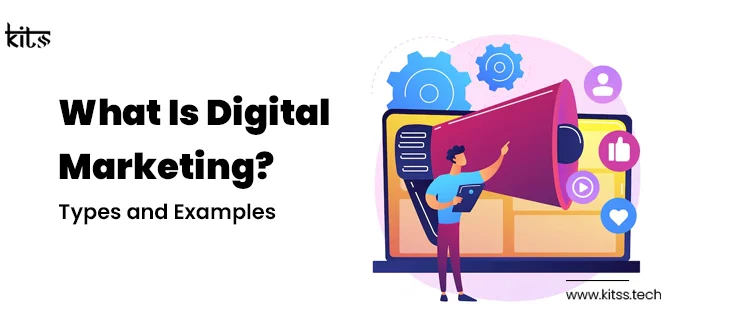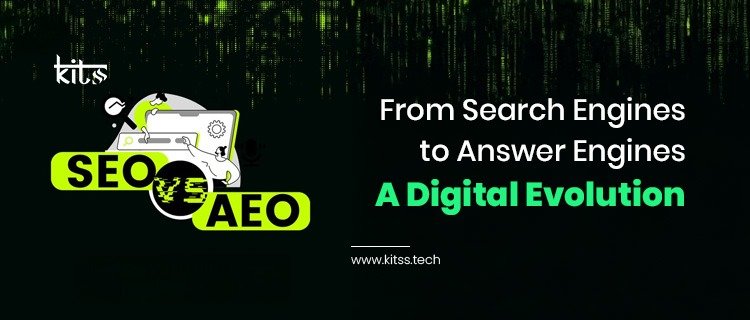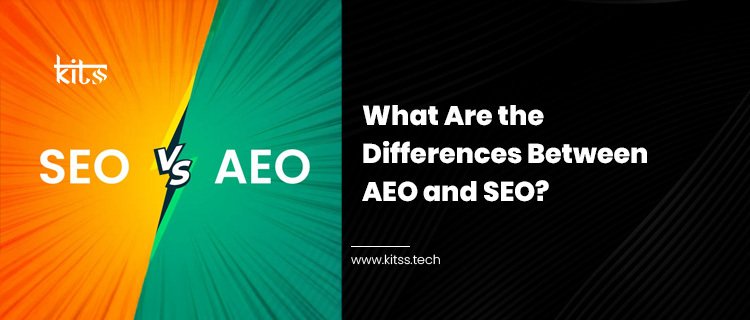
Social Media Marketing Explained: Strategies, Tools, And Benefits
Social Media Marketing Explained: Strategies, Tools, And Benefits Social Media Marketing (SMM) is a world-famous tool for digital marketing. In the past decade, business people,

Digital marketing refers to the use of online platforms, including websites, mobile applications, social media channels and search engines, to promote and market goods and services to a specific target audience. Digital marketing incorporates many of the same principles as traditional marketing and is often seen as an additional way for companies to target consumers and understand their behavior. Companies often combine traditional and digital marketing techniques in their strategies. However, digital marketing also brings with it a number of challenges. The popularity of digital marketing began with the spread of the internet in the 1990s.
Marketing encompasses a wide range of techniques and media that companies can use to promote their products and services to potential customers and increase their market share. To be successful, it requires a combination of advertising and sales skills. Professional marketers perform these tasks either internally in individual companies or externally in marketing firms that can serve many different clients
Effective marketing requires a multi-faceted approach, utilizing different strategies and channels to reach and engage target audiences and ultimately increase business growth and market presence. Success in this area requires a blend of creative advertising skills and sharp sales acumen. Experienced marketers either work in-house for specific companies or with external agencies that cater to different client groups.
In the past, companies focused on marketing through print media, television and radio because nothing else was available to them. These options still exist, but the internet gave companies another way to reach consumers and they turned to digital marketing.
The rapid development of technology and changing consumer behavior forced companies to adapt their marketing approaches and re-evaluate their financial resources. With the advent of digital marketing, email marketing emerged as an important channel to reach customers. The emergence of search engines such as Netscape enabled companies to optimize their online presence through strategic tagging and keywording. Later, the emergence of social media platforms such as Facebook gave businesses the ability to collect and leverage user data, allowing for highly targeted and personalized outreach.
Smartphones and other portable devices now make it easier for businesses to market their products and services to consumers wherever they are. A study by the Pew Research Center in 2024 found that 81% of American adults have already made online purchases via their phone.
Businesses can now use smartphones and other mobile devices to promote their products and services to consumers wherever they are. According to a Pew Research Center study, 76% of American adults have used their phones to shop online.
Digital marketing channels have evolved over time and continue to change. Below are eight of the most popular channels used in marketing today.
In today’s digital landscape, a company website is the linchpin of its online marketing efforts. It needs to convey the brand identity and offering in a way that resonates well with visitors. A well-designed website should also focus on usability, such as fast load times, seamless mobile functionality and intuitive navigation.
PPC advertising, also known as pay-per-click advertising, allows marketers to target their audience on various online platforms by placing paid ads. Advertisers have the ability to create PPC campaigns on platforms such as Google, Bing, LinkedIn, X (formerly Twitter), Pinterest and Facebook and target people searching for relevant terms related to their offers.
Advertisers can target specific user groups by categorizing them by age, gender, interests or location to market pay-per-click advertising.
The aim is to target potential customers by creating and sharing articles, images or videos that match their interests. These are usually hosted on a website and then distributed through various channels, such as social media, email newsletters, SEO strategies and targeted advertising.
Email marketing may have a reputation for being synonymous with unsolicited messages, but it is still a very successful digital advertising medium. To maximize its potential, many marketers are using their other online channels to build a list of potential customers.
the most important goals of a social media marketing initiative are to increase brand awareness and promote credibility. As you delve deeper into social media marketing, you can also use it to engage potential customers and serve as a platform for direct sales and marketing efforts. Examples of social media marketing tactics include sponsored content and paid social media ads.
The online partnership marketing approach has been revitalized in the digital age, with businesses and influential individuals working together to promote other companies’ products. In return for their advertising efforts, they receive a percentage of the revenue generated by each sale or new customer acquired. Several prominent Amazon companies engage in lucrative affiliate marketing that rewards their partners with substantial commissions for driving sales and growth.
Online video marketing is a popular strategy for businesses looking to reach internet users who frequently visit platforms such as YouTube for a variety of reasons, including product research, how-to guides, reviews and entertainment. Marketers have a range of video marketing options available to them, such as Facebook videos, Instagram and TikTok, or services. By combining content with SEO, content marketing and social media measures, companies can achieve optimal results and effectively address their target audience.
Businesses use text messaging, commonly known as SMS or short message service, to highlight their latest offers, publicize groups and political figures and ask for donations. Numerous marketing initiatives allow customers to complete a transaction or donation through a simple text.
Key Performance Indicators (KPIs) play a crucial role in this. Similar to traditional marketers, digital marketers rely on KPIs to evaluate the effectiveness of their marketing strategies over time and benchmark themselves against their industry peers.
Click: This KPI is often used to measure the effectiveness of online advertising by counting the number of people who clicked on a particular ad as a percentage of all people who may have seen the ad.
Conversion rate: The conversion rate goes further than the click-through rate and compares the percentage of people who took a desired action, such as a purchase, to the total audience that a particular ad or promotion reached.
Social media traffic: This measures how many people interact with a company’s social media profiles. This includes likes, followers, views, shares and/or other measurable actions.
Website traffic: This metric measures how many people visit a company’s website in a given period. Among other things, it can help companies to assess how effective their marketing measures are when it comes to bringing customers to their website.
The digital world poses particular challenges for marketers. For example, digital channels are multiplying rapidly, and marketers need to keep up with them and figure out how to use them effectively. Analyzing and productively using the vast amounts of data that can be collected through these platforms can also be a challenge for marketers. Perhaps most importantly, consumers are increasingly inundated with digital advertising and other distractions, making it harder and harder to capture their attention.
A digital marketing agency specializes in marketing products or services for individuals or businesses through online platforms. Their services include developing and implementing marketing strategies for social media, pay-per-click ads, videos and customized websites, among others.
Digital SEO marketing refers to a range of strategies used by businesses to increase website traffic and improve rankings in search engine results. The higher a website is ranked in search results, the greater the chance that consumers will notice it and click through to explore the content.
Internet marketing refers to the practice of promoting products or services exclusively through online channels. It is a component of digital marketing that uses various digital platforms such as the internet to connect with target audiences.
To pursue a career in digital marketing, it is important to develop a solid foundation in writing, social media and data analytics. Typically, a bachelor’s degree is a prerequisite for most digital marketing positions. Supplementing your education with specialized courses or intensive training programs can also be beneficial. Gaining practical experience through internships during your studies can be a valuable asset. While a master’s degree in digital marketing can be beneficial, it is not necessarily a requirement for success in this field.
To be successful in digital marketing, a professional must possess a number of key skills. Effective storytelling and interpersonal communication are crucial to getting a brand’s message across and resonating with the target audience. In addition, mastery of data analytics is crucial to identify areas of growth and make data-driven decisions. Mastering social media platforms is one of the online marketing strategies.
Unconscious bias in digital marketing, also known as implicit bias, occurs when messages unintentionally perpetuate discriminatory stereotypes. This topic has gained a lot of attention in the advertising and marketing industry in recent years. In the digital realm, implicit bias can be as subtle as the choice of images used in a marketing campaign. For example, companies may unintentionally only show images of healthy, white and heterosexual people and exclude people of colour, different body types and abilities. Although digital marketers often rely on algorithms that are supposed to be unbiased, these algorithms unknowingly introduce their own biases into the system.
The modern media landscape has led marketers to focus primarily on online channels for their advertising efforts, often at the expense of traditional channels.
Digital marketing is the practice of promoting products or services using digital channels, such as search engines, social media, email, and mobile apps. It involves various strategies and tactics to reach and engage with your target audience online.
There are many types of digital marketing, including:
Search Engine Optimization (SEO): Optimizing websites to rank higher in search engine results pages (SERPs).
Pay-Per-Click (PPC) Advertising: Paid ads that appear on search engine results pages or other websites.
Content Marketing: Creating and sharing valuable content to attract and engage customers.
Social Media Marketing: Using social media platforms to build brand awareness and interact with customers.
Email Marketing: Sending targeted emails to nurture leads and customers.
Mobile Marketing: Marketing specifically designed for mobile devices.
SEO Campaign: Optimizing a website for the keyword “best digital marketing agency” to rank higher in search results.
PPC Campaign: Running a Google Ads campaign targeting users searching for “digital marketing services.”
Content Marketing Campaign: Publishing a series of blog posts on “Digital Marketing Trends.”
Social Media Marketing Campaign: Creating a TikTok challenge using a brand hashtag.
Email Marketing Campaign: Sending a personalized email to abandoned cart customers with a discount code.
Digital marketing can help your business by:
Increasing brand awareness
Driving website traffic
Generating leads and sales
Improving customer engagement
Providing valuable insights into your target audience
Some popular tools and technologies used in digital marketing include:
Search Engine Optimization (SEO) Tools: Google Search Console, SEMrush, Ahrefs
Pay-Per-Click (PPC) Tools: Google Ads, Microsoft Advertising
Content Management Systems (CMS): WordPress, Drupal, Joomla
Social Media Management Tools: Hootsuite, Buffer, Sprout Social
Email Marketing Tools: Mailchimp, Constant Contact, HubSpot
Analytics Tools: Google Analytics, Adobe Analytics
By effectively utilizing these tools and strategies, businesses can achieve their marketing goals and succeed in the digital age.

Social Media Marketing Explained: Strategies, Tools, And Benefits Social Media Marketing (SMM) is a world-famous tool for digital marketing. In the past decade, business people,

From Search Engines To Answer Engines: A Digital Evolution In the 21st century, Google Search Engine has become one of the most powerful information-gathering tools.

What Are the Differences Between AEO and SEO? In the world of digital marketing, two important strategies stand out when it comes to increasing visibility